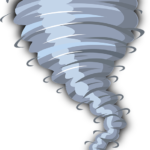
Chapter 13 debtors got a huge “gift” among the COVID relief provisions of the Consolidated Appropriations Act of 2021, signed December 27, 2020 by the president.
Debtors may get a full -compliance discharge of dischargeable debts if they have a residential mortgage and have not made all the payments required by their plan. See the text of new subsection below.
While generous in intent, the drafting of amended 1328(i) is sketchy and its other bankruptcy provisions only marginally coordinated with other bankruptcy provisions of the CARES Act of March, 2020.
New 1328(i) provides
Broadly, a debtor who has not completed payments to either the Chapter 13 trustee or to a creditor holding a security interest in the debtor’s principal residence may get a discharge if there are no more than 3 month’s default on a residential mortgage on or after March 13, 2020 caused directly or indirectly by COVID 19.
Alternatively, the debtor may get a full compliance discharge if his plan provides for cure and maintenance of payments and the debtor obtains a forebearance or loan modification.
The added subsection of 1328 sunsets one year after the enactment of the bill.
What’s amiss in the provision
A debtor is eligible for this expedited discharge if he hasn’t made payments to the trustee, or to a creditor holding a lien on his principal residence. There appears to be no requirement that the missing payments to the trustee occur in a conduit plan or that there is an outstanding, prepetition mortgage arrears.
Note that the only reference to the mortgage debt attaching to the debtor’s principal residence is only found in the opening sentence of the subsection. Every subsequent reference is simply to a “residential mortgage”, an undefined term. It appears that the amendment does not require that the defaults in monthly payments be on the principal residence, so long as there is a default to the trustee.
Neither is there any statutory limitation on when such a discharge may be granted. The amendment does not mention applicable commitment periods nor the Chapter 7 liquidation analysis.
And while the new 1328(i)(1) requires a showing that the payment default is caused directly or indirectly from the pandemic, that causal relationship is utterly absent from (i)(2), allowing a full compliance discharge if the debtor has entered into a forbearance or loan modification with the holder of the defaulted mortgage.
What role for judicial discretion
For me, this has echoes of BAPCPA, where the statutory language was crafted in a hurry, without broader discussion and without meaningful legislative history. Maybe I’m wrong, but I suspect we’re going to spend a bunch of time speculating on what the drafters intended.
And since the language provides that a debtor “may” get a discharge under these circumstances, does that open the door for bankruptcy judges to exercise discretion to deny a discharge described in the new subsection (i)?
Not to mention that, for now, the provision sunsets at the end of 2021. Unless extended, it will take longer to work out just how this works than the relief will be available.
This piece owes a lot to Keith Lundin’s video post from the Bankruptcy Workshop.
Text of added Section 1328(i)
(b) DISCHARGE.—
(1) IN GENERAL.—Section 1328 of title 11,
United States Code, is amended by adding at the
end the following:
‘(i) Subject to subsection (d), after notice and a
hearing, the court may grant a discharge of debts dischargeable under subsection (a) to a debtor who has not
completed payments to the trustee or a creditor holding
a security interest in the principal residence of the debtor
if—
‘‘(1) the debtor defaults on not more than 3
monthly payments due on a residential mortgage
under section 1322(b)(5) on or after March 13,
2020, to the trustee or creditor caused by a material
financial hardship due, directly or indirectly, by the
coronavirus disease 2019 (COVID–19) pandemic; or
‘‘(2)(A) the plan provides for the curing of a
default and maintenance of payments on a residen
tial mortgage under section 1322(b)(5); and
‘‘(B) the debtor has entered into a forbearance
agreement or loan modification agreement with the
holder or servicer (as defined in section 6(i) of the
Real Estate Settlement Procedures Act of 1974 (12
U.S.C. 2605(i)) of the mortgage described in sub
paragraph (A).’’.
(2) SUNSET.—Effective on the date that is 1
year after the date of enactment of this Act, section
1328 of title 11, United States Code, is amended by
striking subsection (i).







